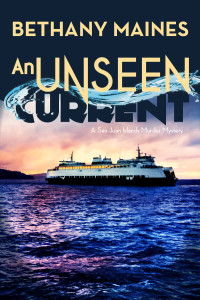One of the best things about being a part of a collective blog like the Girlfriends Book Club is that I have access to the collective wisdom of all the Girlfriends. As a relative newcomer to the group I’ve been catching up on old blogs, following the gals on twitter, and bumping a few of the Girlfriend books to the top of my reading list. For today’s blog I had a virtual sit down with Girlfriend Jess Riley and asked all the questions that I think readers should ask me.

Jess Riley
Question 1 – Let’s cover the basics. Who are you and what do you write?
Uh-oh, I feel an existential crisis coming on! Let’s see…who is Navin Johnson. I mean Jess Riley. These days, I am up to my eyeballs in grant deadlines for my public school clients. When I’m not writing grant proposals or sending veggies through my new Spiralizer (awesome little gadget), I am writing novels…really, I am! I guess you could say I write chick lit that has a major crush on Jonathan Tropper and Shannon Olson? One of the biggest compliments I got recently was an unsolicited review for Mandatory Release from fellow Girlfriend Ellyn Oaksmith: “This is a quirky Indie movie of a book that would win all the prizes at the Sundance Film Festival. ” That made me blush, but it’s essentially what I’m going for with my writing and I love Ellyn for the compliment. Here’s the official bit about my books: Jess’s debut novel, DRIVING SIDEWAYS, was released by Random House in 2008. Selected as a Target Breakout Book, it’s now in its fourth printing. Other novels include ALL THE LONELY PEOPLE and MANDATORY RELEASE. Find her online at www.jessriley.com.
Question 2 – What is the weirdest research you’ve ever done?
One of my secrets used to be lurking on message boards that would be frequented by people like my characters. The main character in Mandatory Release is a young man with a spinal cord injury; as I don’t know any such folks in real life, I dropped in on a few online communities and learned some specific & interesting pet peeves shared by people in wheelchairs. (Such as drunk girls wanting to sit on your lap, people trying to “steer you,” even hair clippings sticking to your hands if you had a hair-cut scheduled for a rainy day.) I actually found two young women with Polycystic Kidney Disease (PKD) this way when I was researching Driving Sideways; they both graciously read early drafts of the novel, as I was keen to make sure the story honored and reflected the experience of a young woman with kidney disease.
Question 3 – What is the most uncomfortable piece of writing you’ve ever completed?
I hate any time I write about parents or siblings (which is ironic because All the Lonely People is all about parents and siblings). I always worry my family will think I’m writing about them.
Question 4 – What is your most memorable book promotion event?
Oh man, I have a zillion embarrassing stories about publicity-gone-wrong. One of the most shame-inducing stories is long, about my most recent book release party, but you can find it on my blog if you’re curious. I also laugh every time I think of the time I was stalking my book at Target–of course I’d check it out to see how many copies were in stock when I ran errands. I was still lurking in the book section when I overheard a young woman say to her boyfriend. “I don’t want a hardcover, I just want something funny and easy to read on vacation.” I took the last copy of Driving Sideways from the shelf and handed it to her. “Uh, I wrote this. You should take it on vacation with you.” She probably thought I was crazy, but she took it with her!
Question 5 – What is your favorite book or movie that everyone thinks you’re weird to love?
Book: One of my all-time favorites is The Stand by Stephen King. I always proselytize about this one!
Movie: This is a hard one, because my movie tastes are all over the map. But generally speaking, if it’s designed to be a big budget pander-fest with stock characters and beats straight out of Screenwriting 101, I’m out. I love anything weird, unexpected, clever, smart, funny: this is going to sound strange, but I really enjoyed both Dead Snow movies on Netflix. Campy…Norwegian…zombie Nazis? How could I resist!
Thanks to Jess Riley for her interview and even if you don’t see her in the book section at Target, you should probably still pick up her books!



